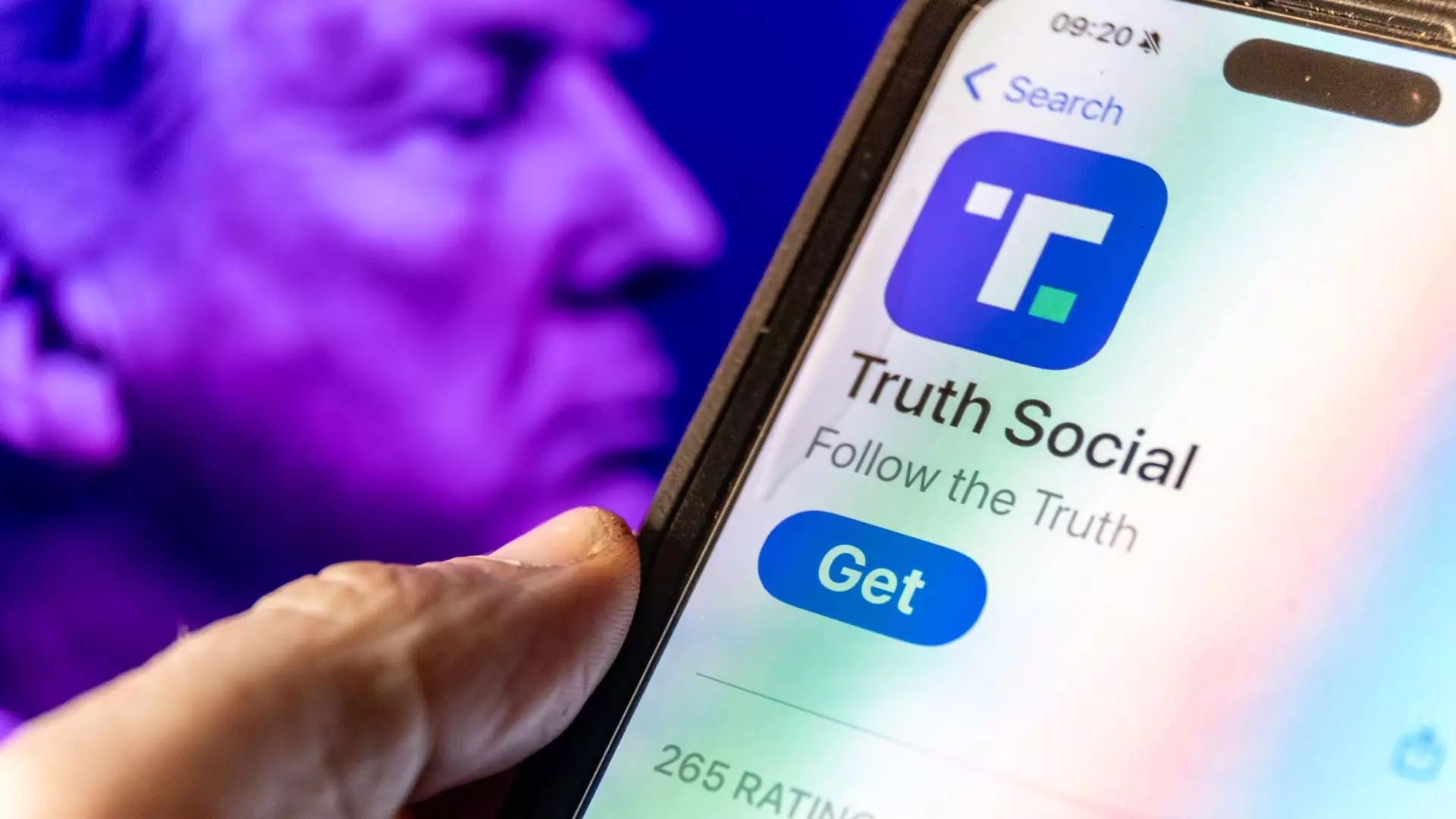In a striking development for Trump Media, Andrew Northwall, the company’s Chief Operating Officer, tendered his resignation in late September. This news, disclosed in a regulatory filing on a Thursday, exposes the internal turmoil at Trump Media, which operates under the ticker symbol DJT on the Nasdaq exchange. The filing, however, left many questions unanswered, as it offered no explicit reason for Northwall’s departure. Instead, the company announced plans to transition his responsibilities within its existing ranks, a move that raises further speculation about potential structural instability within the organization.
Northwall’s exit is emblematic of broader challenges plaguing Trump Media, which was founded to offer an alternative social media platform amidst escalating censorship concerns on mainstream networks. Yet, the unexpected leadership change suggests the possibility of deeper issues beneath the surface, indicating that perhaps the pressures from legal disputes and financial dealings have begun to impact the decision-making capacity of its executives.
The resignation coincides with a contentious legal battle impacting Trump Media’s operations. In a recent ruling, a Delaware court determined that Trump Media had violated an agreement with ARC Global Investments II, a key investor in the merger that enabled the company’s public trading status. The crux of the dispute revolved around the calculation of Class A shares owed to ARC, leading to a court order for the company to allocate nearly 800,000 shares worth approximately $12.7 million based on the latest market prices.
Notably, the ruling highlighted the complexities of stock conversion ratios, which have become a focal point of contention since Trump Media’s merger with the blank-check firm Digital World Acquisition Corp (DWAC). The court led by Judge Lori Will stipulated that the proposed ratio by DWAC was unacceptable and subsequently determined that ARC deserved a larger share of the pie. This contentious episode not only underscores the legal vulnerabilities of Trump Media but also hints at a lack of coherence in strategic planning and financial structuring that could turn off potential investors.
The implications of these legal developments resonate heavily within the investor community. Following the expiration of a lock-up agreement that restricted certain insiders from selling their shares, significant shareholder United Atlantic Ventures made a surprising move by unloading almost its entire 11-million-share stake, which could have been valued at over $128 million based on DJT’s fluctuating stock price. This sort of mass sell-off often sends ripples of concern through the market, as it can indicate a lack of confidence in the company’s future prospects.
Moreover, Trump, as the majority shareholder with nearly 57% ownership valued at around $1.9 billion, faces increasing scrutiny about his commitment to the company amid these upheavals. While he has publicly committed to retaining his investment, the fluctuating stability of Trump Media raises broader questions about the viability of the enterprise going forward, especially with multiple fronts of legal and financial strain.
As the legal battles play out and the company navigates internal dynamics, the future of Trump Media appears precarious. With an ongoing lawsuit from the SEC against Patrick Orlando, the former CEO of DWAC, the specter of accountability looms large over the corporate maneuverings linked to Trump Media and DWAC. Allegations of misinformation in securities filings only deepen the crisis of trust and operational integrity surrounding the company.
In sum, Trump Media stands at a crossroads, needing to reconcile its leadership changes, legal challenges, investor concerns, and the critical market landscape to emerge as a resilient player in the competitive world of social media. The stakes are undeniably high, and as the company attempts to transition its responsibilities internally, its public image and investor faith may hang in the balance. The coming months will be telling in determining whether this bold venture can withstand the compounded challenges it currently faces.

Leave a Reply